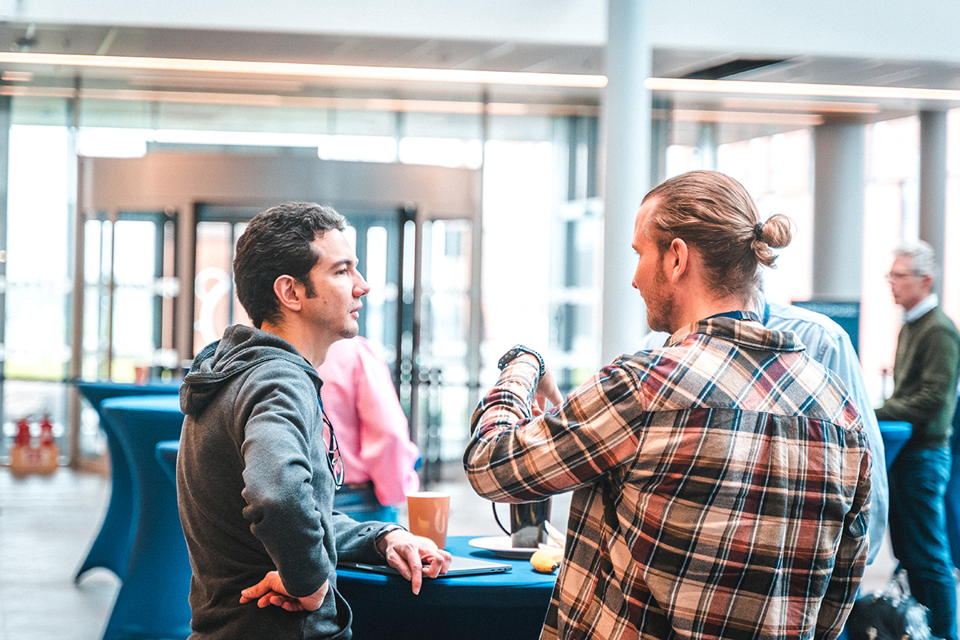Well-being as a foundation for learning
The stage was set for today's keynote that this year focused on what characterizes our current and future students, and how we can best accommodate them and ensure well-being at the university and in our teaching.
Bella Marckmann of the Danish Evaluation Institute (EVA) deals with analysis and assessment of the quality of higher education in Denmark where high dropout rates and student well-being have received increased attention.
While many elements influence these outcomes, one thing is clear – study environments and high-quality teaching are fundamental to students' day-to-day experiences. Academic engagement and social cohesion are essential for reducing dropout rates and improving student well-being.
In her presentation, Bella Marckmann discussed how the university can tackle these challenges and which factors play the most crucial role in students’ academic success.
"Good teaching is teaching that focuses on the student understanding – what we call "learning for understanding". This occurs when teaching incorporates the following three principles: that students interact with the teaching material, that students collaborate in processes where they learn together – both principles that AAU as a PBL university is probably already good at – and finally, that learning takes place in a diverse study environment in terms of age, gender, ethnicity, social background, academic competences, etc.". This was just one of several points from Bella Marckmann.
In Copenhagen, EVA also gave the day's keynote similar to Aalborg, and here it was supplemented by a workshop facilitated by EVA’s Bjarke Tarpgaard Hartkopf and Erika Skov.
Tribute to AAU's talented teachers
After the keynote, there was an opportunity to network over a cup of coffee before the participants divided themselves into the morning's various workshops where they could try their hand at microcredentials or get acquainted with AAU's AI Lab developed for students and staff. In the afternoon, it was also possible to spread out on several different workshop and panel topics, including "Students' perspectives on generative AI at AAU" and "The engaging lecture - didactic and pedagogical approaches".
A fixed item in the annual program on Learning Day: celebrating some of AAU's talented teachers. Professor Sune Qvotrup Jensen, Department of Sociology and Social Work, is Teacher of the Year at AAU in 2025. He gave an inspiring presentation to his colleagues on what he emphasizes when teaching and supervising his own students.
Sune Qvotrup Jensen talked about how he is always aware of encouraging students to ask questions. He believes that they learn more from interaction than just listening to him talk. "Just because I say it doesn't mean they understand it!" He reassured his colleagues that this does not mean that as a teacher you have to be able to answer everything on the spot. You can rest easy in having a strategy for it; for example, say to the student who asks: "I haven't prepared that, but stop by my office later and we can talk about it." It’s about creating a safe learning situation where all questions are allowed.
For the fourth year in a row, the AAU Pedagogy Prize was also awarded on Learning Day. The award went to Martin B. Østergaard of the Department of Chemistry and Bioscience, who in connection with his pedagogy produced a highly acclaimed work that addresses the interesting dilemma of PBL promoting a collective, group-oriented approach to teaching and learning. However, when students reach the last semesters of their programme, they often write their thesis individually. The report shows the potential of supervisor seminars as part of a learning community to complement the traditional supervision of individual students and small groups.
Learning Day in Aalborg ended with the opportunity for networking, experience exchange, and, not least, dialogue about the day's many inspiring points.














